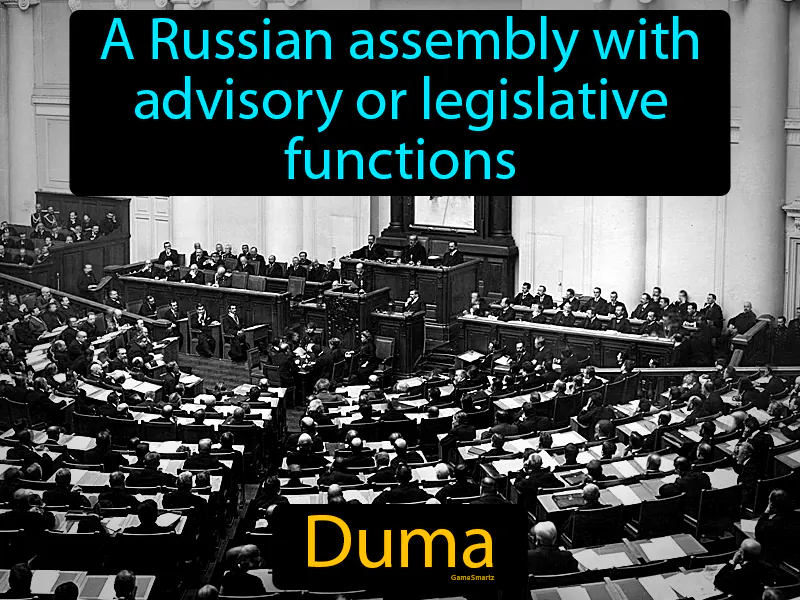Duma

The Duma was established in response to the Russian Revolution of 1905, as people demanded more political power and representation. It was important because it marked a shift towards limited constitutional monarchy and attempted to give citizens a voice in their government. The Duma addressed issues like worker rights, land reform, and social policies, trying to curb unrest and promote stability. Today, it still matters as a symbol of early efforts toward democracy and representation, reminding us of the importance of having a say in government decisions. For example, participating in local town hall meetings in your community is similar, where citizens can express their views and influence local governance, highlighting the ongoing relevance of representative assemblies.
Practice Version

Duma: A Russian assembly with advisory or legislative functions. Duma. In history, the Duma refers to the elected legislative body in Russia, which played a crucial role in the country's political system, notably from the early 20th century under the Tsarist regime to the present day.